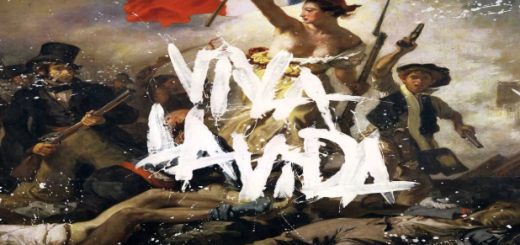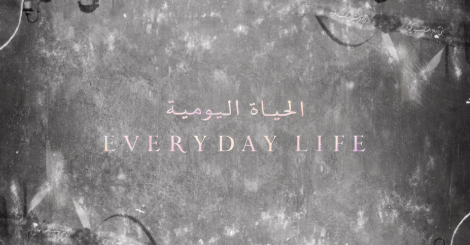Rainy Day by Coldplay Lyrics Meaning – The Stormy Embrace of Change and Melancholy
- Music Video
- Lyrics
-
Song Meaning
- A Golden Gray Veil: The Duality of Storms and Serenity
- Crumbling Foundations and Tumbling Times: The Symbolism of Decay
- The Paradox of Separation and Unity: Longing in the Downpour
- The Heart’s Ballad with Royalty: Metaphors of Lovelorn Nobility
- The Visceral Verse: Unraveling the Hidden Meaning Within
Lyrics
The sky wore a veil of gold and gray
At night it was the bright of the moon with me
Time was just floating
Then there was rain
This town’s foundations are crumbling
To the ground comes a bit of a tumbling
And time just floated away
We can watch it and stay and we can listen
Oh, rainy day, come round
Sometimes I just want it to slow down
And we’re separated now
I’m down
But I love it when you come over to the house
I love it when you come over to my house
Then there was rain
And I spent the night with the Queen of Spain
My lonely little heart would’ve broke again
Times were vicious
Singing, deeper that the knife goes in the more you win
You win but with less than when you begin
Deeper that the knife goes in
Oooooooooooooooh
Ooh, rainy day come round
Sometimes I just want it to slow down
We’re separated now
I’m down
But I love it when you come over to the house
I love it when you come over to my house
Aaaaah aaaah aaaaaah
Aaaaah aaaah aaaaaah
Aaaaah aaaah aaaaaah
But I love it when you come over to the house
I love it when you come over to my house
But I love it when you come over to the house
I love it when you come over to my house
Embarking on a lyrical journey through Coldplay’s ‘Rainy Day’ is akin to witnessing the unfolding drama of the skies, contrasting the tumult of a storm with the solace found in its aftermath. This track, hidden like an overlooked gem in the discography of one of modern music’s most mesmerizing acts, encapsulates themes of transition, the beauty of sadness, and the complexity of human desire for both movement and stillness.
Below the unassuming title lies a narrative laced with poetic imagery, capturing a series of dichotomous emotions. Each line serves as a brushstroke in a larger painting, one that might hang in the hallowed halls of our shared consciousness. With this exploration, we delve deep into the crevices of each verse, unearthing the whispered secrets between the raindrops, and revealing the rich tapestry of meaning woven into ‘Rainy Day.’
A Golden Gray Veil: The Duality of Storms and Serenity
The opening lines of ‘Rainy Day’ immediately drape the listener in a ‘veil of gold and gray,’ an image that perfectly marries the glow of optimism with the pall of gloom that often accompanies life’s uncertainties. Coldplay crafts an exquisite balance, acknowledging the darkness of a rainy day while also highlighting the warm allure that can coexist with it. This juxtaposition sets the stage for the song’s exploration of emotional dualities, where beauty and sorrow are often contiguous.
In the soft twilight glow invoked by the song, Coldplay invites the audience to find peace amidst chaos. The rain represents both a cleansing force and a herald of transformation. Just as Earth rejuvenates with water, so too can the human spirit find renewal in the wake of life’s passing storms.
Crumbling Foundations and Tumbling Times: The Symbolism of Decay
As the song progresses, ‘This town’s foundations are crumbling,’ implying a disintegration of stability, both literally and figuratively. Here, Coldplay touches upon the theme of impermanence and the often-inexorable decay of things we hold dear. The notion that ‘time just floated away’ suggests a passive, almost helpless witness to the relentless march of time. There’s a universality to this sentiment, a shared experience in watching the familiar dissolve before us.
Yet, amidst the rubble of these metaphorical foundations, the band posits a resilient choice: ‘We can watch it and stay and we can listen.’ This line becomes a call to embrace the ephemeral, to find the strength to be present in the midst of change, even when it threatens to sweep us along its current.
The Paradox of Separation and Unity: Longing in the Downpour
One of the song’s most poignant refrains, ‘We’re separated now / I’m down,’ delves into the heartache of distance, whether it’s emotional, physical, or a complex combination of both. The repeated confession, ‘But I love it when you come over to my house,’ serves as an anchor in the tempest, a reminder of the connections that outlast even the most relentless rains.
In these lines, Coldplay encapsulates the deep-seated human yearning for togetherness and the bittersweet reality that often the most cherished moments are fleeting. This interplay between the joy of unity and the pain of separation magnifies the song’s emotional resonance and reflects a truth about love and relationships that many can relate to.
The Heart’s Ballad with Royalty: Metaphors of Lovelorn Nobility
The enigmatic verse, ‘And I spent the night with the Queen of Spain,’ bristles with metaphorical richness. On one level, it could represent an escapade of the heart, an instance where loneliness ebbs in the company of another. Yet, there’s an underlying ache here, a sense that even royal company can’t mend a ‘lonely little heart’ set to break again.
Coldplay provokes us to question the value of surface-level interactions against the backdrop of deep emotional needs. While the ‘Queen of Spain’ may offer a distraction from ‘times that were vicious,’ the core message remains: superficial remedies fail to heal the deeper cuts of the soul.
The Visceral Verse: Unraveling the Hidden Meaning Within
Perhaps the song’s most profound revelation lies in the metaphor, ‘Singing, deeper that the knife goes in the more you win.’ It’s an oxymoron that belies a harsh truth about human experiences. Coldplay suggests that it is through the deepest struggles and pains that one truly gains wisdom and resilience, a controversial take on life’s trials.
The paradox of victory through loss is etched into this haunting refrain. Coldplay seems to acknowledge that growth often comes at a steep price, and what is won in the process might leave us with ‘less than when you begin,’ a humbling perspective on the nature of personal battles and the scars they leave.








